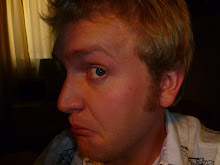Ode to a Beard
Men’s chins were made to be furry. This is absolutely the truth, because, as my friend used to say, “God don’t make no junk.” Hear ye the same from St. Clement: "How womanly it is for one who is a man to comb himself and shave himself with a razor, for the sake of fine effect, and to arrange his hair at the mirror, shave his cheeks, pluck hairs out of them, and smooth them! ...For God wished women to be smooth and to rejoice in their locks alone growing spontaneously, as a horse in his mane. But He adorned man like the lions, with a beard, and endowed him as an attribute of manhood, with a hairy chest—a sign of strength and rule."[1] Michelangelo’s Moses has, perhaps, the greatest beard of any block of stone. This is my thesis. And this, this is my wish: oh, how I wish I could have such a beard…
A cursory look at the great men portrayed in Renaissance art yields this truth: the greater the man, the bigger the beard. I think, perhaps, it is that the beard is required to weigh one down sufficiently to prevent one’s floating up to heaven.[2] Raphael’s School of Athens has, as its central figure, the central figure of Renaissance thought – Plato. Examine, if you will, Plato’s beard as compared to those around him. Is there a beard larger in the bunch? Nay, verily, nay. Oh, sure, Boethius comes close, and Plotinus may be a rival, but this simply proves the point. Out of the dozens of figures, only a few are shorn of their manliness – the rest are indeed “adorned like lions.” If the most prominent example of the intellectual and philosophical milieu of the Renaissance is so thoroughly bearded, who can deny the beardedness of the Renaissance herself? There’s cultural context for you. We have established a basis for the importance I attach to the majestic bunch of hirsute attached to Moses’ face. Now! on to the beard itself.
Imagine for a moment Moses without his beard. Thoroughly underwhelmed? Of course. Now, grow it back out. Every inch of bristle adds a mile of terribilità. The curls adorning Moses’ head find no interruption as they scale downward and descend from the powerful chin (what a powerful chin it must be, to suspend such mighty fibers!), cascading in a wave that emasculates Niagara in comparison. It curls in perfect tresses, drapes in perfect waves – an ideal form, Plato’s own heavenly beardness, brought down to earth without loss in transmission! But this beard is not just for adornment or vanity, no! It is the savior of the people, the tool of restraint – without his beard to hold it back, what violence would Moses’ hand impart to the fickle Israelites! The enormous weight of such sublime thread holds Moses not only down to earth, but slows the fire of his heart in grand bearded contemplation. His fierce glare is tempered by the fatherly pelt of his chin – truly this is a Man, a Prophet, balanced in his virtues, wise in his judgment. Such opulence without can only spring from nobility within. Unlike clothing, which can be bought and sold, a beard is an integral part of the superior human, springing from the very soul. No wig can be a substitute for regality such as this. It is a nest for the love of God, a net for the love of man. From it grows forgiveness and goodness, jollity and gravity. Here, sculpted by one possessed himself of a mighty beard, we see the true measure of a man, appropriately meted in accordance with principles eternal in their depth, breadth, and prehistoric truth.
How I sing to thee, O beard of the Lawgiver! The Torah was revealed through thy veil to Israel, from thy mouth came the voice of the Prophet as a trump! What a day this is, when men have forgotten thee, when laws prohibit thee, when lesser men make a mockery of thy excellence! I look to the day – O, how I look! – when I can rest again upon thy couches and take my repose in thy perfection! When will I be restored to thee and thou to me, o when! Godspeed the day – Godspeed the growth – God save the beard!

No comments:
Post a Comment